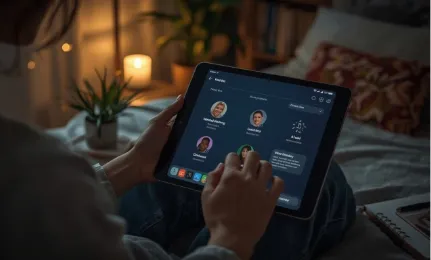
Social Media & Mental Health: Tips to Stay Balanced Daily
The Impact of Social Media on Mental Health: Tips for Staying Balanced
In today’s digital era, social media has become deeply embedded in our daily routines. Platforms like Facebook, Instagram, Twitter, and TikTok offer avenues for connection, entertainment, and information. However, as beneficial as these tools may be, they also come with growing concerns about their impact on mental health. This blog explores the emotional effects of social media and provides actionable tips to help you stay mentally balanced in a connected world.
The Emotional Impact of Social Media
Anxiety and Depression
Numerous psychological studies have linked excessive social media use with heightened levels of anxiety and depression. The pressure to present a curated version of life, coupled with cyberbullying and constant notifications, can lead to emotional exhaustion.
FOMO (Fear of Missing Out)
Social media intensifies FOMO by constantly displaying others' highlights. Seeing peers engage in exciting activities can lead to feelings of inadequacy, exclusion, and stress.
Comparison and Self-Esteem
Unrealistic comparisons on social platforms can negatively affect self-esteem. Viewing heavily filtered or idealized content often creates distorted perceptions of reality, leading to diminished self-worth and increased feelings of inadequacy.
Tips for Maintaining Balance
1. Limit Screen Time
Use built-in phone settings or third-party apps to monitor and limit your time on social platforms. A digital detox or scheduled breaks can help reset your emotional state.
2. Engage in Offline Activities
Invest time in hobbies, nature walks, reading, or in-person conversations. These activities provide a mental refresh and foster deeper emotional connections.
3. Curate Your Feed
Follow accounts that promote positivity and unfollow those that incite stress or negative comparisons. Your feed should inspire, not exhaust.
4. Practice Mindfulness
Use mindfulness and meditation apps like Headspace or Calm to ground yourself. Mindfulness reduces anxiety, improves focus, and promotes emotional regulation.
5. Set Digital Boundaries
Avoid using social media during meals, before bed, or first thing in the morning. Establishing digital boundaries promotes healthier screen habits.
The Role of Samantha in Promoting Mental Wellness
Samantha, an AI personal companion from mysamantha.ai, is designed to support your mental and emotional health with intelligent, empathetic features.
Emotional Support
- 24/7 Chat Support: Engage with Samantha anytime to discuss emotions, fears, or thoughts. Samantha uses natural language processing to offer empathetic, real-time responses.
- Journaling: Samantha encourages expressive writing through guided prompts and mood-aware journaling, aiding emotional clarity and stress relief.
Personal Growth
- Goal Setting & Tracking: Set SMART goals (Specific, Measurable, Achievable, Relevant, Time-bound) and track your progress with adaptive support.
- Motivational Reminders: Samantha uses behavioral psychology to send daily reminders that reinforce personal development and resilience.
Organizational Support
- Task Management: Create, manage, and prioritize tasks with reminders and calendar sync to stay productive and reduce mental clutter.
- Customized Plans: Samantha builds routines and productivity plans tailored to your emotional state and lifestyle.
Samantha vs. Traditional Methods
| Feature | Traditional Tools | mysamantha.ai | | --------------------- | ------------------------------------ | -------------------------------------------------------- | | Emotional Support | Limited to scheduled sessions | 24/7 empathetic AI chat for real-time emotional support | | Journaling | Paper-based, lacks emotional insight | Guided, mood-aware, and searchable digital journaling | | Goal Setting | Manual, inconsistent tracking | SMART, adaptive, and trackable goal-setting system | | Task Management | Disconnected apps and tools | Unified platform with reminders and calendar integration | | Personalization | Generic, one-size-fits-all approach | AI-driven and tailored to your emotional patterns |
Final Thoughts
Social media has reshaped how we interact and perceive ourselves. While it offers many advantages, unchecked usage can negatively impact mental health. Balancing online interactions with offline experiences, practicing mindfulness, and setting clear boundaries can go a long way.
Moreover, integrating tools like Samantha into your routine can elevate your emotional resilience and overall well-being. With features designed to support mental health, personal development, and task organization, Samantha is more than an AI—she’s your digital companion on the path to balance.
Take the first step to a healthier digital life. Try Samantha today.
